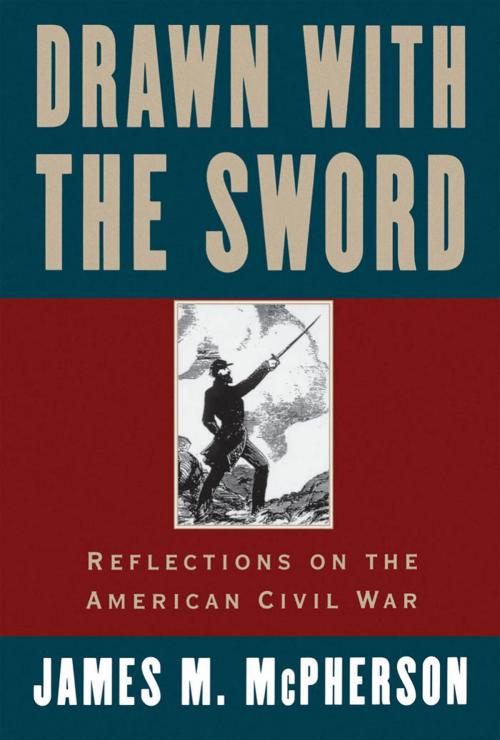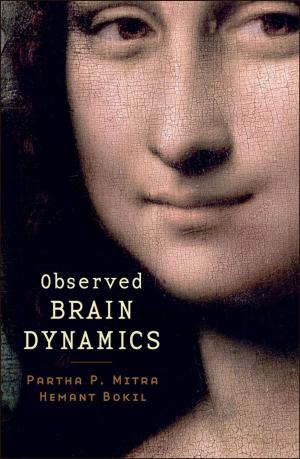Drawn with the Sword
Reflections on the American Civil War
Nonfiction, History, Americas, United States, Civil War Period (1850-1877), Military| Author: | James M. McPherson | ISBN: | 9780199831159 |
| Publisher: | Oxford University Press | Publication: | December 18, 1997 |
| Imprint: | Oxford University Press | Language: | English |
| Author: | James M. McPherson |
| ISBN: | 9780199831159 |
| Publisher: | Oxford University Press |
| Publication: | December 18, 1997 |
| Imprint: | Oxford University Press |
| Language: | English |
James M. McPherson is acclaimed as one of the finest historians writing today and a preeminent commentator on the Civil War. Battle Cry of Freedom, his Pulitzer Prize-winning account of that conflict, was a national bestseller that Hugh Brogan, in The New York Times, called "history writing of the highest order." Now, in Drawn With the Sword, McPherson offers a series of thoughtful and engaging essays on some of the most enduring questions of the Civil War, written in the masterful prose that has become his trademark. Filled with fresh interpretations, puncturing old myths and challenging new ones, Drawn With the Sword explores such questions as why the North won and why the South lost (emphasizing the role of contingency in the Northern victory), whether Southern or Northern aggression began the war, and who really freed the slaves, Abraham Lincoln or the slaves themselves. McPherson offers memorable portraits of the great leaders who people the landscape of the Civil War: Ulysses S. Grant, struggling to write his memoirs with the same courage and determination that marked his successes on the battlefield; Robert E. Lee, a brilliant general and a true gentleman, yet still a product of his time and place; and Abraham Lincoln, the leader and orator whose mythical figure still looms large over our cultural landscape. And McPherson discusses often-ignored issues such as the development of the Civil War into a modern "total war" against both soldiers and civilians, and the international impact of the American Civil War in advancing the cause of republicanism and democracy in countries from Brazil and Cuba to France and England. Of special interest is the final essay, entitled "What's the Matter With History?", a trenchant critique of the field of history today, which McPherson describes here as "more and more about less and less." He writes that professional historians have abandoned narrative history written for the greater audience of educated general readers in favor of impenetrable tomes on minor historical details which serve only to edify other academics, thus leaving the historical education of the general public to films and television programs such as Glory and Ken Burns's PBS documentary The Civil War. Each essay in Drawn With the Sword reveals McPherson's own profound knowledge of the Civil War and of the controversies among historians, presenting all sides in clear and lucid prose and concluding with his own measured and eloquent opinions. Readers will rejoice that McPherson has once again proven by example that history can be both accurate and interesting, informative and well-written. Mark Twain wrote that the Civil War "wrought so profoundly upon the entire national character that the influence cannot be measured short of two or three generations." In Drawn With the Sword, McPherson gracefully and brilliantly illuminates this momentous conflict.
James M. McPherson is acclaimed as one of the finest historians writing today and a preeminent commentator on the Civil War. Battle Cry of Freedom, his Pulitzer Prize-winning account of that conflict, was a national bestseller that Hugh Brogan, in The New York Times, called "history writing of the highest order." Now, in Drawn With the Sword, McPherson offers a series of thoughtful and engaging essays on some of the most enduring questions of the Civil War, written in the masterful prose that has become his trademark. Filled with fresh interpretations, puncturing old myths and challenging new ones, Drawn With the Sword explores such questions as why the North won and why the South lost (emphasizing the role of contingency in the Northern victory), whether Southern or Northern aggression began the war, and who really freed the slaves, Abraham Lincoln or the slaves themselves. McPherson offers memorable portraits of the great leaders who people the landscape of the Civil War: Ulysses S. Grant, struggling to write his memoirs with the same courage and determination that marked his successes on the battlefield; Robert E. Lee, a brilliant general and a true gentleman, yet still a product of his time and place; and Abraham Lincoln, the leader and orator whose mythical figure still looms large over our cultural landscape. And McPherson discusses often-ignored issues such as the development of the Civil War into a modern "total war" against both soldiers and civilians, and the international impact of the American Civil War in advancing the cause of republicanism and democracy in countries from Brazil and Cuba to France and England. Of special interest is the final essay, entitled "What's the Matter With History?", a trenchant critique of the field of history today, which McPherson describes here as "more and more about less and less." He writes that professional historians have abandoned narrative history written for the greater audience of educated general readers in favor of impenetrable tomes on minor historical details which serve only to edify other academics, thus leaving the historical education of the general public to films and television programs such as Glory and Ken Burns's PBS documentary The Civil War. Each essay in Drawn With the Sword reveals McPherson's own profound knowledge of the Civil War and of the controversies among historians, presenting all sides in clear and lucid prose and concluding with his own measured and eloquent opinions. Readers will rejoice that McPherson has once again proven by example that history can be both accurate and interesting, informative and well-written. Mark Twain wrote that the Civil War "wrought so profoundly upon the entire national character that the influence cannot be measured short of two or three generations." In Drawn With the Sword, McPherson gracefully and brilliantly illuminates this momentous conflict.















